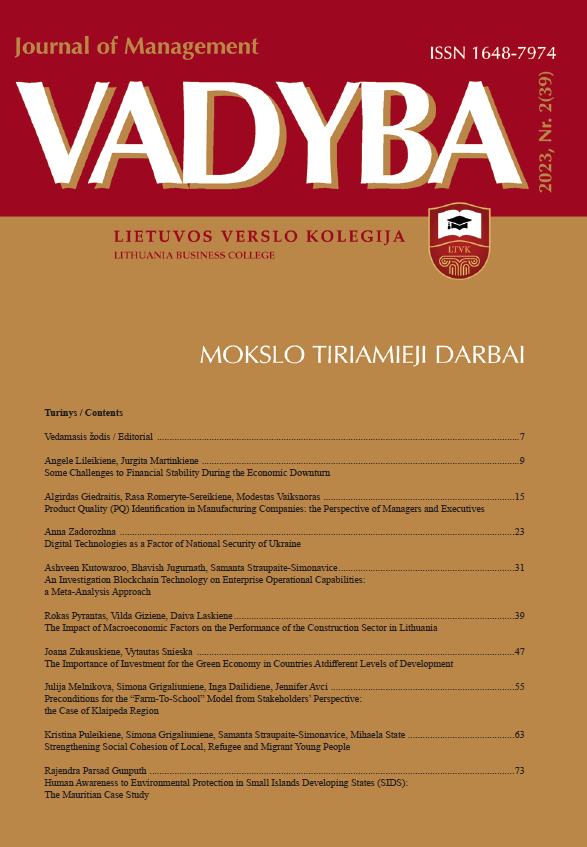THE CIRCULAR ECONOMY TRANSITION IN THE EUROPEAN UNION
THE CIRCULAR ECONOMY TRANSITION IN THE EUROPEAN UNION
Author(s): Oyeranmi Samson Gbolahan, Valentinas NavickasSubject(s): Economy, Law on Economics, EU-Legislation
Published by: Lietuvos verslo kolegija
Keywords: circular economy; linear economy; circular economy model; waste recycling; waste management; European Union;
Summary/Abstract: The objective of this research project is to conduct a systematic review of the transition toward a circular economy within the European Union. The issue of unsustainability in the current global society is widely acknowledged within the European Union. This is attributed to the unequal distribution of benefits and costs related to resource utilization among member states of the European Union. The circular economy is acknowledged for its ability to efficiently address social and environmental issues. The transition from the existing linear economic model to a circular one has recently garnered increased attention from notable multinational corporations and influential stakeholders in attendance at the World Economic Forum. The establishment of circular economy models is crucial for promoting and enhancing the adoption of the circular economy. This research paper delves into the benefits of adopting a circular economy model in the context of industry, economy, and waste management. The development of design strategies for the circular economy is guided by a conceptual framework, and recommendations are subsequently provided in accordance with this framework.
Journal: VADYBA
- Issue Year: 39/2023
- Issue No: 2
- Page Range: 97-103
- Page Count: 7
- Language: English

